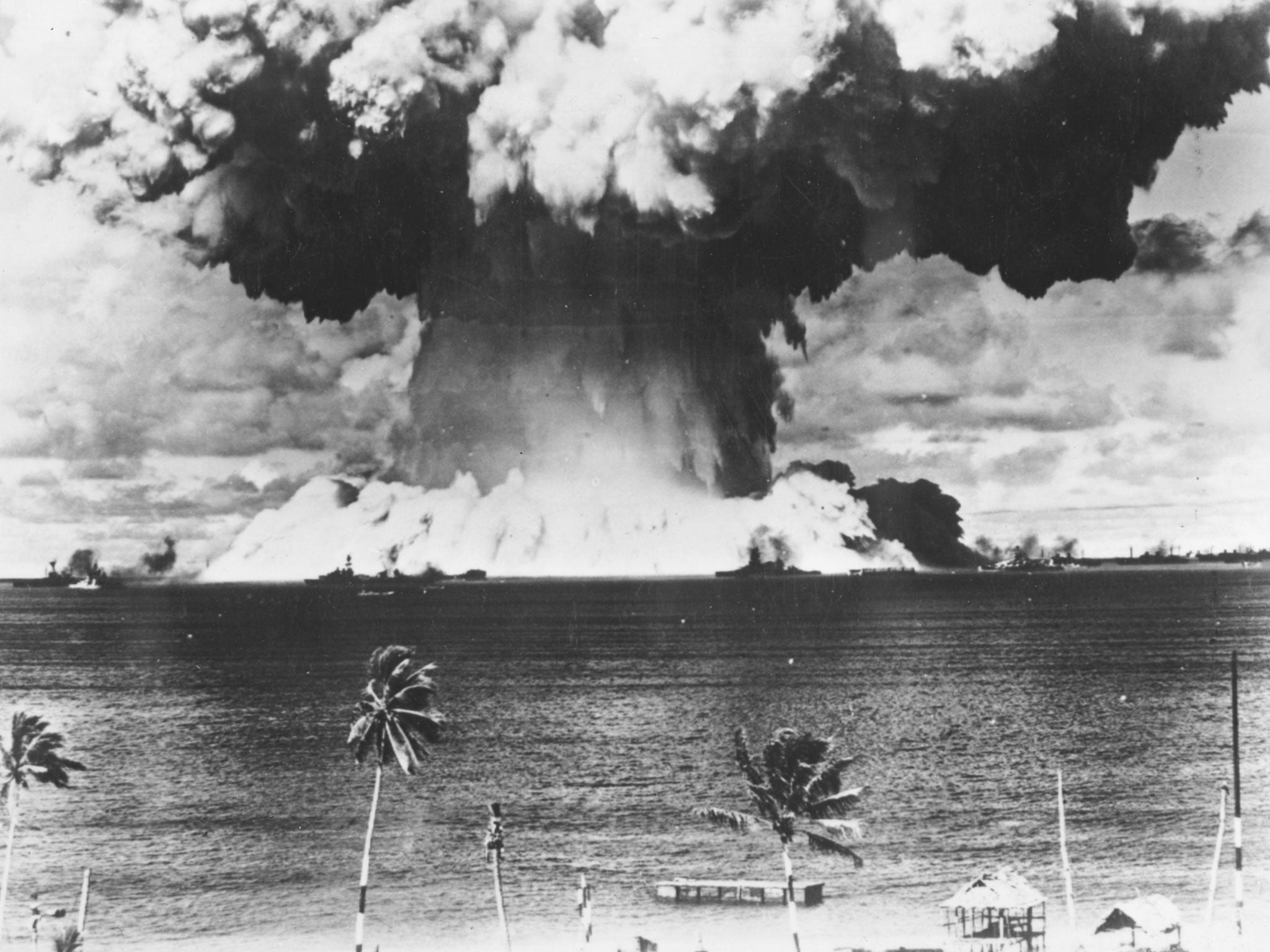Pacific Ocean Marshall Islands launch lawsuits against nations with nuclear arms over testing effects
The Islands were the site of US nuclear tests for 12 years after WWII
Your support helps us to tell the story
From reproductive rights to climate change to Big Tech, The Independent is on the ground when the story is developing. Whether it's investigating the financials of Elon Musk's pro-Trump PAC or producing our latest documentary, 'The A Word', which shines a light on the American women fighting for reproductive rights, we know how important it is to parse out the facts from the messaging.
At such a critical moment in US history, we need reporters on the ground. Your donation allows us to keep sending journalists to speak to both sides of the story.
The Independent is trusted by Americans across the entire political spectrum. And unlike many other quality news outlets, we choose not to lock Americans out of our reporting and analysis with paywalls. We believe quality journalism should be available to everyone, paid for by those who can afford it.
Your support makes all the difference.The small Oceanic Marshall Islands is to launch an unprecedented round of lawsuits against nine nations with nuclear arms, including the US, to demand that they meet their obligations to disarm.
The Pacific nation was the site of 67 US nuclear tests for 12 years following the end of World War II, which caused lasting health and environmental impacts.
Rather than claim compensation from the US, the Islands plan to use the damage caused as a reason to urge that Russia, Britain, France, China, Israel, India, Pakistan and North Korea negotiate disarmament rather than modernise their nuclear arsenals.
It will also accuse the armed nations of “flagrant violations of” international law. It estimates that they will spend $1 trillion on arsenals over the next decade.
On Thursday, the Islands filed a lawsuit filed on Thursday against each country in the International Court of Justice in The Hague, Netherlands. It will also take action against the United States in San Francisco, naming President Barack Obama, the departments and secretaries of defence and energy and the National Nuclear Security Administration.
The countries will be asked to accept the International Court of Justice's jurisdiction, and explain their positions on disarmament.
“Our people have suffered the catastrophic and irreparable damage of these weapons, and we vow to fight so that no one else on earth will ever again experience these atrocities,” the country's foreign minister, Tony de Brum, said in a statement announcing the lawsuits.
The cases are based on the 1968 Nuclear Nonproliferation Treaty, which is considered the cornerstone of nuclear disarmament efforts, and requires negotiations among countries in good faith on disarmament.

Despite Israel, India, Pakistan and North Korea are not parties to the Treaty, the lawsuits argue they are bound by its provisions under “customary international law.”
None of the countries had been informed in advance of the lawsuits.
Paul Hirschson, a spokesman for the Israeli Foreign Ministry, said he was unaware of the lawsuit, however “it doesn't sound relevant because we are not members of the nuclear nonproliferation treaty.”
“It sounds like it doesn't have any legal legs,” he said about the lawsuit, adding that he was not a legal expert.
“There hasn't been a case where individual governments are saying to the nuclear states, 'You are not complying with your disarmament obligations,” said John Burroughs, executive director of the New York-based Lawyers Committee on Nuclear Policy, part of the international pro bono legal team.. “This is a contentious case that could result in a binding judgment.”
In 1996, the International Court of Justice said unanimously that an obligation existed to bring the disarmament negotiations to a conclusion, Burroughs said.
Instead, “progress toward disarmament has essentially been stalemated since then,” he said.
Some of the nuclear-armed countries might argue in response to these new lawsuits that they've been making progress in certain areas or that they support the start of negotiations toward disarmament, but the Marshall Islands government is likely to say, “Good, but not enough” or “Your actions belie your words,” Burroughs said.
Several Nobel Peace Prize winners are said to support the legal action, including South African Archbishop Desmond Tutu and Iranian-born rights lawyer Shirin Ebadi.
“We must ask why these leaders continue to break their promises and put their citizens and the world at risk of horrific devastation,” Tutu said in the statement announcing the legal action.
The court has seen cases on nuclear weapons before. In the 1970s, Australia and New Zealand took France to the court in an effort to stop its atmospheric nuclear tests in the Pacific.
Spokespeople from the U.S. Embassy in the Netherlands said they could not immediately comment.
Additional reporting by AP
Join our commenting forum
Join thought-provoking conversations, follow other Independent readers and see their replies
Comments